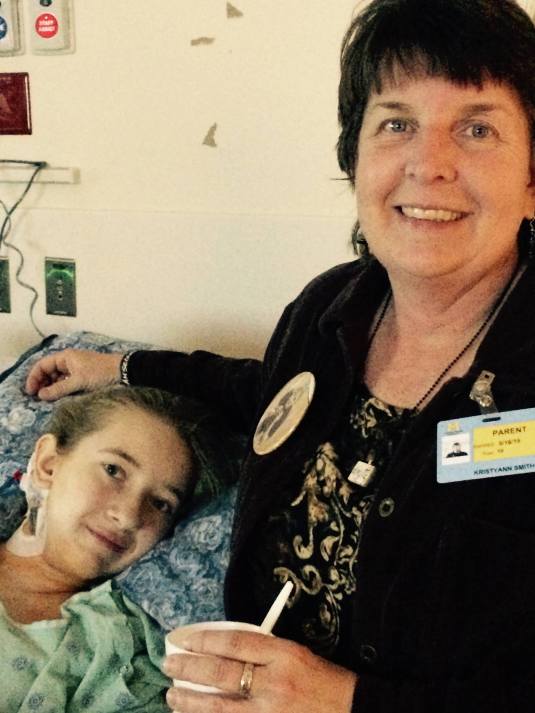I spent time with my son, who, despite being given great care by my nephew’s family and helpful classmates’ parents, was feeling neglected by his own. I watched his track invitational, took him to a Young Marines encampment in Battle Creek, and yelled at him about leaving dirty socks in the dining room. Just like always.
Between the swearing in the car, the teasing for a fast food restaurant and the subsequent ignoring me over Big Macs while swiping my phone to Facebook message his girlfriend, our Sunday felt like old times. Except for the conspicuous absence of his sister, Kate.
Born 14 months apart following major gynecological surgery that threatened my ability to bear children, my two kids have gone through life pretty much as bookends. People rarely say “Kate” or “Connor” separately. They run their names together like a couple of pints of Ben and Jerry’s ice cream: “Connor and Kate” aka “Double Sib Trouble.”
They were reared like twins. Unable to afford babysitting, I took them almost everywhere with me, including to business meetings, funeral visitations and even on dates. While unusual, it’s helped them develop social skills beyond their years. They deal better with adults than do most adults. As a result, Kate is winning rave reviews in her current role as hospital heart surgery patient. She’s community property. Everybody knows her.
By default, my kids are comfortable in new situations and adept at meeting people, down to offering firm handshakes. They put others at ease with small talk on a variety of topics, using questions to engage and draw out information. Watching Connor recently in conversation with a 90-something family friend, I noted the depth and thoughtfulness of his responses. Other times, he’s rude, crude and stupid, obviously my son.
Kate is a force of nature, fully-alive. She never met a person she wasn’t willing to talk to. With socializing a top priority, she’s as deeply kind as she can be shallowly catty. Kate’s the kind of kid who alternates between doing her parents proud and making them want to do her in for what she gets herself into. That said, she has a really big heart, shoots from the hip and tends to hit only bullies. You never have to wonder what Kate is thinking because she’ll tell you!
Given abundant time to think over the past three weeks of Kate’s hospitalization, I’ve decided having a critically ill child is really not my style. Not that I think it’s anyone’s cup of tea, really, but I’m the parent who told a crying Kate on the sidelines of a soccer game (after she’d just been cleated in the thigh), “It’s gonna hurt whether you are on the sidelines or out on the field, so decide where you wanna be.” She wisely chose to get back into the game.
I’m not a stand-by-the-bedside, cool compresses on forehead, hand-wringing giver or receiver of TLC kind of person. However, that’s exactly what was called for early during Kate’s highly unfortunate and shockingly serious health episode. I’ve even branched out into toileting, showering, feeding and breathing checking – parenting skills I thought we’d outgrown.
Watching Kate clumsily eat orange sherbet after the ventilator and feeding tube were removed, I cheered like when she’d graduated from Gerber cereal during babyhood. And I actually applauded and photographed her catching a large purple ball tossed by the OT. Milestones and stepping stones. While I was worthless doing helpless, my best skills get used post-intensive care, now that Kate has achieved rehab unit status.
“C’mon, do two more!” I challenge as she struggles with in-bed jumping jacks.
“But it hurts,” she cries, her life-saving, surgically-broken sternum protesting her efforts. It’s not fun to get cleated by life.
While the source of the infection that led to bacterial meningitis, gastrointestinal bleeding, pneumonia, endocarditis and stroke remains unknown, there is one given: Miss Kate has decided to get back into the game!

